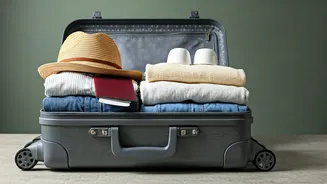Smart Flight Strategies
One of the quickest ways to save money on travel is to be smart about your flights. Several factors can significantly affect flight prices. First, consider
the time of day. Night flights are often cheaper than those during the day because there is less demand. This is a simple adjustment that can lead to significant savings, especially for longer journeys. Another strategy is to be flexible with your travel dates. Mid-week flights, such as Tuesdays and Wednesdays, are typically less expensive than weekend flights. Furthermore, booking flights in advance can also provide savings. Airlines often offer lower prices for bookings made several weeks or even months before departure. Comparing prices across different airlines and using price comparison websites can also help you find the best deals. Be sure to explore budget airlines, which often offer competitive prices, although you should take extra baggage fees into consideration. Finally, consider alternative airports. Airports slightly further from your final destination may offer cheaper flights, and the savings could offset the cost of ground transportation.
Affordable Destination Choices
Choosing the right destination is crucial for a budget-friendly getaway. Think about destinations with a lower cost of living. Countries in Southeast Asia, such as Thailand, Vietnam, and Indonesia, offer stunning natural beauty, rich culture, and delicious food at a fraction of the cost of destinations in Western countries. Exploring within India can also lead to great savings. Consider places like Goa, Rajasthan, or Kerala, which offer diverse experiences at affordable prices, ranging from beaches to cultural sites and vibrant cities. Researching the local costs for accommodation, food, and activities is essential. Opting for budget-friendly accommodation like hostels, guesthouses, or Airbnb apartments can significantly cut expenses. In addition, look for destinations with free or low-cost activities. National parks, historical sites, and local markets often provide entertainment at minimal expense. Taking advantage of free walking tours and exploring the local cuisine at street food stalls can further reduce costs while adding a rich cultural experience to your trip.
Packing and Pre-Trip Planning
Effective planning and packing are key to a successful, budget-friendly trip. Start by creating a detailed budget that outlines all expected expenses, including transportation, accommodation, food, activities, and souvenirs. This provides a clear picture of what you can afford. Preparing a packing list can prevent unnecessary purchases at your destination, saving money on essential items like toiletries and medications. Pack versatile clothing items that can be mixed and matched to create different outfits. This minimizes the need to buy clothes while you are away. Consider packing snacks and drinks to avoid costly purchases at airports or tourist traps. Before you leave, make sure you notify your bank of your travel dates to avoid any issues with your credit or debit cards. Check for travel insurance to safeguard against unexpected situations such as medical emergencies or trip cancellations. Furthermore, research local transportation options in advance. Public transport, such as buses or trains, is usually cheaper than taxis or private car services. Planning your itinerary in advance allows you to take advantage of deals, discounts, and free activities.
Food and Dining on Budget
Dining expenses can quickly add up, so being strategic about your food choices is vital. Embrace local cuisine and steer clear of overpriced tourist restaurants. Street food is a fantastic option in many places, offering delicious and authentic flavors at a fraction of the cost. If your accommodation has cooking facilities, consider preparing some of your meals yourself. Buying groceries at local markets is often cheaper than eating out for every meal. Look for local markets that offer fresh, seasonal products, and consider preparing simple meals such as sandwiches or salads. Be mindful of water expenses. Carry a reusable water bottle and refill it at safe sources to avoid buying bottled water. Research local food blogs and recommendations for affordable eateries. Local bloggers often have great insights into the best budget-friendly dining options. Exploring different culinary experiences is a significant part of the travel adventure. By adopting these strategies, you can enjoy amazing meals without overspending.
Maximizing Experiences
One of the best ways to experience a destination is by taking advantage of free or low-cost activities. Many cities offer free walking tours that provide a great introduction to the area's history, culture, and attractions. Research free events and festivals happening during your travel dates. This can include concerts, cultural performances, and outdoor activities. Explore parks, beaches, and natural attractions, which are typically free and offer unique experiences. Visiting local markets can be a sensory feast, providing insights into local life and culture. Consider purchasing a city pass if it includes free entry to several attractions. These passes can be cost-effective if you plan to visit multiple museums and historical sites. Plan activities that give you an opportunity to interact with locals. This could involve taking a cooking class or attending a local workshop. Use public transportation. It is often the cheapest way to explore a city, which can save a lot of money.














